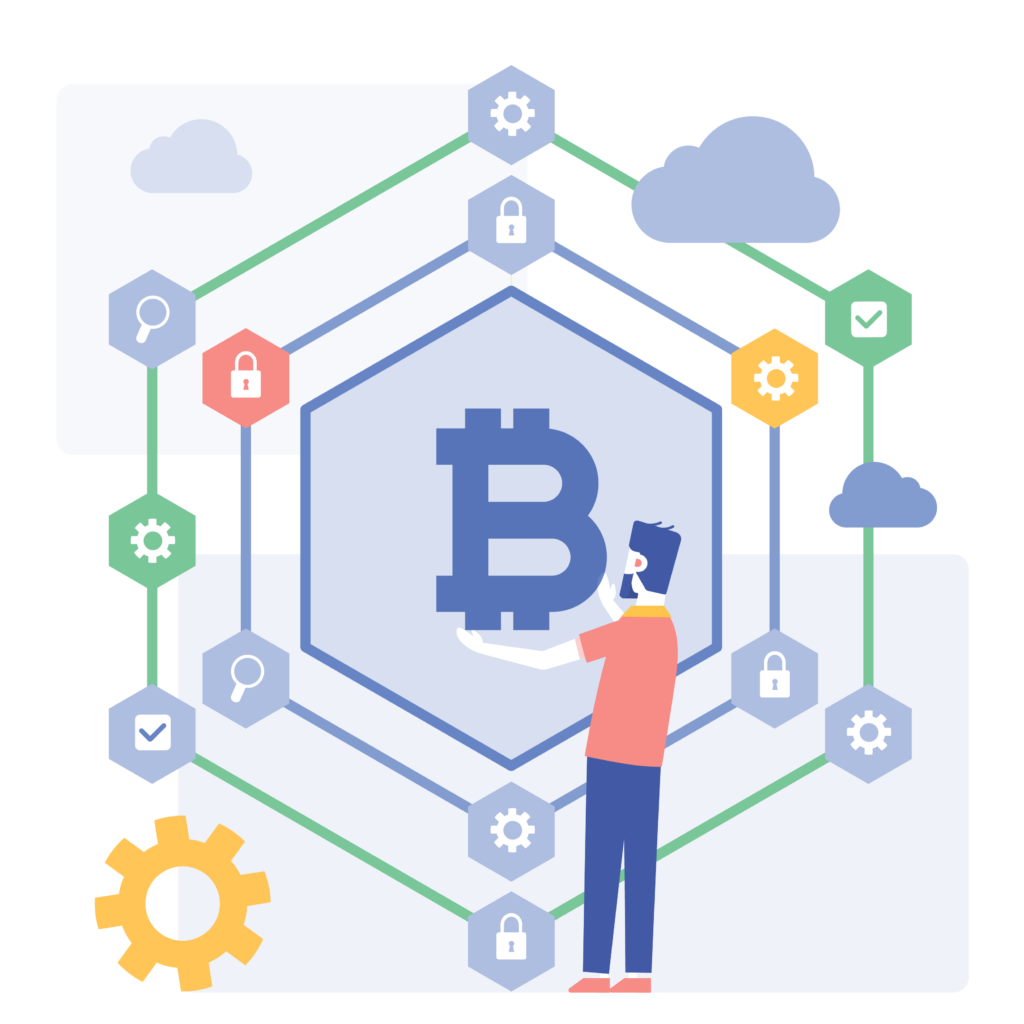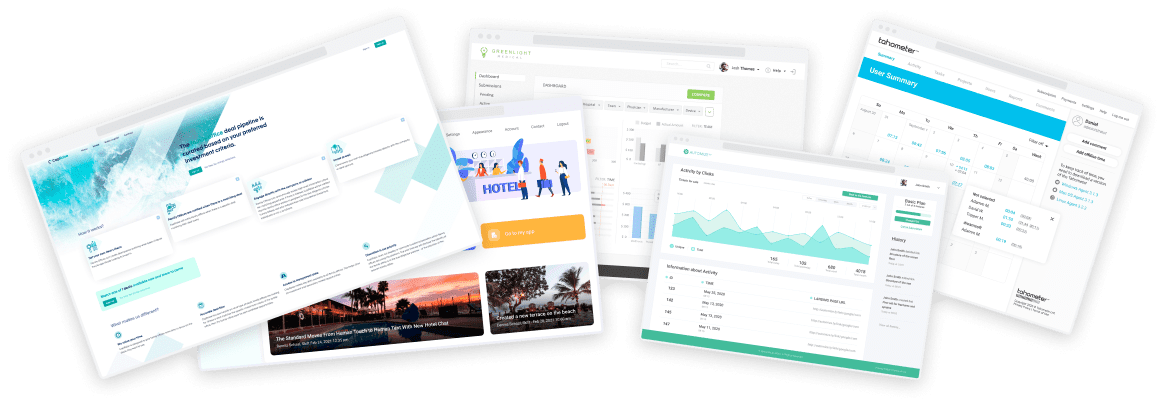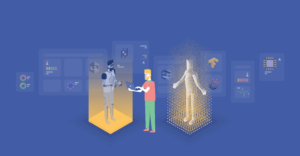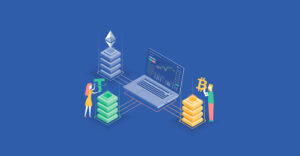Cryptominer Alert: A lab environment built for learning was hijacked...
Read MoreBlockchain Development Services
If you’re looking for blockchain development services in UK, you’ve come to the right place!
Consisting of a distributed and decentralised digital ledger, the blockchain is often associated with cryptocurrencies like Bitcoin, but has many other applications. For instance, blockchain real estate software development can reduce costs, facilitate escrow payments, and automate transactions. Essentially, the blockchain is resistant to data modification, which facilitates a host of ingenious possibilities.
A great blockchain development company UK can implement this technology with phenomenal results.
Blockchain in software development refers to a digital ledger system that enables secure, transparent and tamper-proof transactions. It is a decentralised system that allows multiple parties to access and verify the accuracy of the data stored within it. Blockchain software development, therefore, is focused on creating and implementing blockchain-based systems and applications.

Many businesses are finding that blockchain technology can be incredibly helpful in a number of ways. For example, blockchain solutions development can help to increase transparency and trust between organisations, enable secure and efficient supply chain management, and facilitate the creation of new business models and revenue streams. Additionally, a top blockchain development team can help businesses to reduce costs, increase efficiency, and improve security.
Where Is The Blockchain Used?
Cryptocurrencies
A distributed ledger for cryptocurrencies remains one of the blockchain's primary uses. The most notable of these is Bitcoin.
Smart Contracts
In addition to being both trackable and irreversible, smart contracts enable automated escrow.
Financial Services
The blockchain is being heavily adopted by financial institutions, as it may help speed up back office settlement systems.
Supply Chain
Supply chain management and logistics are just some of the many areas employing blockchain tracking services.
Healthcare
The blockchain may also be used as a protective measure for the IT components of healthcare software systems.Insurance
Blockchain adoption has also led to peer-to-peer insurance, parametric insurance and microinsurance software solutions.
Which Blockchain Platform To Adopt
Notable vendors offering platforms for the blockchain include IBM, Etherium and others.
Ethereum
Kaleido
IBM Blockchain Platform
Corda
Azure Blockchain Workbench
Coinbase Institutional
Hyperledger
Are You Looking For A Blockchain Solution?
What Can The Blockchain Do?
As with any other form of software technology, distributed blockchain development services must be fit for purpose. We recommend the application of a blockchain development service in the following areas:
Internal Payments
While the gaming industry is the most commonly cited example, cryptocurrency-based payments can be applied in a variety of sectors.
Online Voting
Voter data protection has become a growing concern, and is another area where the blockchain's tamper-proof capabilities are useful.
Tracking Data
The blockchain helps businesses to keep track of their carbon footprint, and manage digital assets in a secure and decentralised way.
ICO
Both ICO and STO/DSOs can help tokenise traditional assets (e.g. company shares) in addition to more innovative ones like intellectual property, real estate, art and individual products.
Industries Relying on Blockchain Development Today
Whether you’re looking for software house blockchain real estate experts or blockchain development services healthcare professionals can harness, SPG can help. Thanks to our wide-ranging experience across multiple industry verticals, by working with SPG’s blockchain technology solution & services team, you can rest safely in the knowledge that your blockchain web products will be tailored to your unique industry.
Case Studies
At SPG, we are proud of the work we do, and that includes our blockchain development services. From SMEs to large corporations looking for mobile developers in the UK, we are the trusted partners of hundreds of businesses — both UK-wide and internationally — who put their confidence in our experienced programming specialists. If you are interested in some of our past projects, have a look at our featured case studies!
Clients from SMEs to Fortune 500 Companies
When it comes to serving customers, there is never really a silver bullet. Our success is the direct result of working hard to find the right approach for every one of our specific partners.
“At our organization, they’re known for being insanely productive. If we give them an assignment, we know it’ll be completed on our end before we’re even ready to review it. That’s really why we keep coming back year after year."
VP of Engineering, Hospitality Company. Miami, Florida
“They’re technically proficient, delivering eloquent solutions to all of our problems. They’re a team of clever, critical thinkers. I can’t think of anything that I would’ve changed about their service. They were absolutely fantastic."
CEO, Iron.io. Las Vegas, Nevada
"Their team philosophy combines reliable, customized software solutions for everyone and an individual approach to each client with unrivaled offshore value" — read the full review.
Kate Gross, a journalist for fixthephoto.com
“They took a hands-on approach and suggested site improvements, which speaks volumes to their commitment. I would not have a business without the work this company did. We now have hundreds of users, including over 80 paying ones!"
Founder & CEO, Sequitur News LLC. Champaign, Illinois
“This is the best experience I’ve had with an outside vendor. They’re collaborative and insightful, providing insight and expertise to improve the final result. They’re also flexible and timely."
Performance Manager, Nokia. Budapest, Hungary
How Do We work?
Our customer roadmap is as straightforward as it gets:
Get in touch
Arrange a phone call or video chat
Provide requirements
Estimate project
Start development
Are You Ready to Start Your Blockchain Project?
Get In Touch With SPG Right Now!
Related Blog Posts
Healthcare Digital Transformation: Top Trends in 2023
Let's take a look at the healthcare digital transformation trends...
Read MoreTrends in Software Development 2023
Software Development Trends of 2023. What are the latest TOP...
Read MoreHow to Create a DeFi Crypto Exchange Platform
By understanding the right components and developing a thorough game...
Read More



